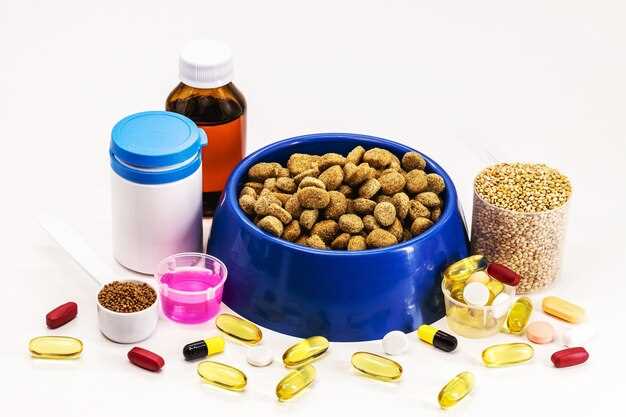Provide a balanced diet rich in protein for your puppy’s muscle development and energy needs. Pup-friendly proteins should primarily come from high-quality animal sources like chicken, beef, or fish. While you can include some plant-based proteins, they should complement the meat, not replace it. Protein plays a pivotal role in ensuring your puppy develops strong muscles and maintains a healthy weight as they grow.
Calcium is another key nutrient necessary for bone health and growth. Puppies require a higher calcium intake compared to adult dogs due to their rapid growth phase. Incorporate foods such as salmon or specially formulated puppy kibble that are rich in this nutrient to support bone strength and prevent developmental issues. Phosphorus partners with calcium to further enhance your puppy’s skeletal development, so providing the right balance is crucial.
Never underestimate the power of fats in your puppy’s diet. Essential fatty acids like Omega-3 and Omega-6 contribute to brain development and promote a healthy coat. Look for food options that include fish oil or flaxseed oil. These oils not only support cognitive function but also help reduce inflammation and support healthy skin, crucial for playful and active puppies.
Vitamins also play a supportive role in a growing puppy’s diet. Vitamin D aids in calcium absorption and bone growth, while Vitamin E serves as an antioxidant to protect your puppy’s cells. Puppies benefit from a diet filled with a rich variety of vitamins that support vision, immunity, and overall health, ensuring they grow strong and resilient.
Puppy Nutrition Guide: Nutrients for Growing Puppies

Provide your growing puppy with a balanced diet rich in high-quality proteins and healthy fats. Puppies need approximately 22% protein in their diet to support muscle development and overall growth. Focus on sources like chicken, lamb, or fish, which are easily digestible and packed with amino acids.
Include fats for energy and brain development. Puppies require about 8% fat content in their food, and you can find this in ingredients such as chicken fat and fish oil, which also contribute to a healthy coat and skin.
- Calcium and Phosphorus: These minerals are critical for bone development. Ensure your puppy’s diet has a balanced ratio of these nutrients to prevent growth abnormalities. A typical ratio would be about 1.2 parts calcium to 1 part phosphorus.
- Omega-3 and Omega-6 Fatty Acids: Vital for cognitive function and maintaining healthy skin and fur, these can be supplemented through fish oil or flaxseed oil.
- Antioxidants: Vitamins C and E support a healthy immune system. Choose foods with fruits like blueberries or ingredients like sweet potatoes to boost antioxidant levels.
Hydration is essential for all pets; ensure your puppy always has access to clean, fresh water. Avoid overfeeding by consulting with a vet to determine the adequate portion sizes based on your puppy’s breed, size, and activity level.
Regularly review and adjust your puppy’s dietary plan every few months, especially during growth spurts, to match their evolving nutritional needs. Keeping track of these guidelines will help your puppy grow into a healthy, active adult dog.
Key Nutrients for Puppy Development

Prioritize high-quality protein in your puppy’s diet to support muscle growth and overall health. Puppies require protein to build strong muscles, as well as to develop a robust immune system. Ensure that the food contains a mix of animal-based proteins such as chicken, beef, or lamb, as these offer essential amino acids beneficial for young puppies.
Incorporate healthy fats like omega-3 and omega-6 fatty acids to promote brain development and a shiny coat. Fish oils, such as those from salmon or flaxseed, are excellent sources. These nutrients also aid in the absorption of fat-soluble vitamins and can reduce inflammation.
Ensure sufficient calcium and phosphorus levels to strengthen bones and teeth during growth phases. These minerals are pivotal for structural development. Choose foods that maintain an appropriate calcium-to-phosphorus ratio, ideally between 1:1 and 1.2:1, to prevent bone-related issues.
Include carbohydrates to provide energy and fiber, which are indispensable for digestive health. Opt for whole grains like brown rice and oats to keep your puppy energized and maintain intestinal regularity.
Monitor vitamin intake, particularly vitamins A, D, and E, which are vital for vision, bone growth, and antioxidant functions, respectively. Foods should be fortified with these vitamins or contain natural sources such as liver and fish to meet daily requirements.
| Nutrient | Benefit | Source |
|---|---|---|
| Protein | Muscle Building | Chicken, Beef, Lamb |
| Omega-3 and Omega-6 | Brain and Coat Health | Fish Oil, Flaxseed |
| Calcium and Phosphorus | Bone Strength | Dairy, Fish |
| Carbohydrates | Energy Provision | Brown Rice, Oats |
| Vitamins A, D, E | Various Health Functions | Liver, Fish |
Keep a balanced approach by offering a well-rounded diet that supports your puppy’s rapid growth. Regular veterinary checkups will help adjust dietary plans to specific needs, ensuring sustained and healthy development.
Understanding Protein Requirements
Puppies require a diet rich in high-quality protein for optimal growth and development. Aim to provide at least 22% protein in their diet, sourced from well-absorbed animal proteins such as chicken, lamb, or fish. Ideal protein levels support strong muscles, a healthy immune system, and proper organ function.
Monitor the amino acid profile, ensuring the inclusion of essential amino acids like arginine, histidine, isoleucine, leucine, valine, phenylalanine, threonine, tryptophan, methionine, and lysine. These are critical for tissue repair and enzyme production. Balance protein intake with other nutrients, avoiding excess that could strain developing kidneys or lead to obesity.
Incorporate a combination of wet and dry food to keep meals tempting and provide various textures without overwhelming puppies with one type. When selecting commercial puppy foods, review labels for specific meat ingredients followed by meals, ensuring a balanced formula suitable for their breed and size.
Regularly consult with a veterinarian to adjust dietary plans according to the puppy’s growth phase and unique needs. This hands-on approach helps in fine-tuning protein sources as puppies transition to adulthood, guaranteeing long-term health and vitality.
The Role of Fats in Puppy Growth
Provide your puppy with a balanced diet that includes healthy fats from sources such as fish oil, chicken fat, or flaxseed. These fats are crucial not only for supplying energy but also for aiding the development of the brain and nervous system. Omega-3 and Omega-6 fatty acids, found in these sources, are particularly beneficial for promoting cognitive function and visual development.
| Fat Source | Benefits |
|---|---|
| Fish Oil | Supports brain health, reduces inflammation, and enhances coat quality. |
| Chicken Fat | Rich in linoleic acid, which aids in maintaining healthy skin and coat. |
| Flaxseed | Provides fiber, supports digestive health, and is an excellent source of plant-based Omega-3s. |
Incorporate these fats into your puppy’s diet to ensure optimal growth and development. Keep the fat intake between 8-20% of the total caloric intake, adjusting as needed with growth and activity levels. Always monitor your puppy’s response to dietary changes and consult a veterinarian if you observe any adverse effects.
Importance of Vitamins and Minerals
Ensure your growing puppy receives a balanced diet rich in essential vitamins and minerals. Puppies need vitamin A for healthy vision and immune function. Incorporate foods like carrots and sweet potatoes to provide this essential nutrient.
Vitamin D is critical for bone health, as it aids in proper calcium absorption. Consider offering your puppy vitamin-D enriched foods or consult your veterinarian about supplements if necessary.
Minerals, such as calcium and phosphorus, are pivotal for your puppy’s skeletal development. Include high-quality puppy-formulated foods that list these minerals to support strong bone growth.
Iron supports the development of red blood cells and helps prevent anemia. Make sure your puppy’s diet includes meat-based proteins, which are excellent sources of iron.
Zinc is necessary for skin health and a robust immune system. Foods like chicken and beef naturally provide zinc, contributing to a well-rounded diet for your puppy.
Monitor your puppy’s growth and overall health to ensure they are receiving adequate nutrition. Consult your veterinarian for personalized dietary recommendations tailored to your puppy’s specific needs.
The Impact of Carbohydrates on Energy Levels
Ensure your growing puppy receives an optimal balance of carbohydrates to fuel their high energy demands. Puppies are naturally energetic, and carbohydrates provide the necessary glucose to support their active lifestyle. Choosing the right type of carbohydrates is important to sustain their energy throughout the day.
Complex carbohydrates found in whole grains and vegetables release energy slowly, offering prolonged vitality. This slow release helps maintain consistent energy levels, reducing the chances of sudden spikes and crashes. Include sources like brown rice, sweet potatoes, and peas in their diet to provide steady energy.
Monitor carbohydrate intake according to your puppy’s activity levels. Highly active puppies may require a higher percentage of carbohydrates compared to less active ones, although exceeding 50% of the total diet is usually unnecessary. This balance promotes sustained energy without contributing to unnecessary weight gain.
While simple carbohydrates from sugars provide quick energy bursts, they should be limited, as they can lead to energy fluctuations that may affect mood and behavior. Concentrate on providing complex carbohydrates that support both energy stability and overall health.
Consult with a veterinarian to adjust your puppy’s diet as they grow and their activity levels change. Proper carbohydrate management can significantly enhance their energy levels, ensuring they thrive and enjoy every playful moment.
Water Intake and Hydration Needs
Provide your growing puppy with fresh water at all times. Puppies need about half a cup of water every two hours during the day. Monitor for signs of dehydration such as lethargy, loss of appetite, and sunken eyes. Adjust the water intake based on activity level, climate, and diet. In warmer climates or following exercise, increase the water provided to accommodate higher loss through panting and activity. If a puppy is on a dry food diet, ensure increased water access compared to those fed wet food. Replace the water daily to maintain cleanliness and encourage frequent drinking.
Encourage your puppy to drink by using wide, shallow bowls that allow easy access, and consider adding ice cubes during hot weather to make the water more appealing. Regular hydration contributes to optimal digestion, nutrient absorption, and temperature regulation, which are all crucial for healthy growth. Observe your puppy’s water intake habits, and consult a veterinarian if there are significant changes or signs of dehydration.
Planning a Balanced Diet for Puppies

Choose high-quality puppy food labeled for your puppy’s size and breed, ensuring it meets AAFCO standards. Puppies need more protein, fats, and specific vitamins, so look for a product with at least 22% protein and 8% fat content. Offer three to four meals per day up to 12 weeks, then reduce to three meals until six months old. Introduce one new food at a time over a week to monitor allergies or digestive issues. Including fatty acids such as DHA supports brain development, while calcium and phosphorus contribute to bone health. Treats should not exceed 10% of daily caloric intake, and always provide fresh water. Regular veterinary check-ups will help tailor the diet to the puppy’s specific needs and health status.
Choosing the Right Commercial Puppy Food
Prioritize a puppy food labeled as “complete and balanced” as these will meet the nutritional requirements set by AAFCO. Analyze the ingredient list to ensure that a high-quality protein source, such as chicken or beef, is among the first few ingredients. Puppies require more protein than adult dogs to support growth, so aim for a food that contains 22-32% protein content.
Check the presence of essential fatty acids, like DHA, which support brain and vision development. Look for foods that include omega-3 and omega-6 fatty acids, commonly sourced from fish oil. These are crucial for maintaining healthy skin and promoting a shiny coat.
- Calcium and Phosphorus: Choose a formula that maintains a proper balance between calcium and phosphorus to ensure bone health. For most puppies, a ratio between 1:1 and 1.3:1 is optimal.
- Digestibility: Opt for foods with digestible ingredients. Brown rice, oats, and sweet potatoes are excellent sources of carbohydrates that do not irritate a puppy’s digestive system.
- Brand Reputation: Consider sticking to reputable brands known for high-quality standards. Brands that conduct feeding trials, not just lab analyses, often provide better assurance of food quality.
Beware of artificial additives, such as colors and preservatives, and avoid foods with ambiguous ingredient descriptions like “meat by-products.” It’s essential to adjust portion sizes according to the puppy’s age, breed, and energy levels, and consult your vet when transitioning between foods. Consistent energy levels and shiny fur generally indicate a balanced diet. Regularly monitor your puppy’s growth and maintain veterinary check-ups to reassess diet needs as they mature.
Incorporating Fresh Foods Safely
Introduce fresh foods to your puppy’s diet by ensuring they complement their existing nutrition plan. Begin with small amounts of safe options like cooked pumpkin or sweet potatoes. These foods provide beneficial fiber and vitamins.
- Introduce Gradually: Start with one new food at a time, observing for any signs of allergies or digestive issues, such as diarrhea or vomiting. This cautious approach allows easy identification of problem foods.
- Prioritize Safe Choices: Include lean meats like chicken or turkey, free of seasoning, bones, and skin. Fruits such as apples (without seeds) and blueberries present valuable antioxidants.
- Avoid Toxic Foods: Steer clear of dangerous items like chocolate, grapes, onions, and garlic, which can cause serious health issues.
- Balance is Key: Fresh foods should not exceed 10% of daily caloric intake to maintain a balanced diet. Consult with a veterinarian to ensure the balance aligns with dietary needs.
- Monitor Portions: Adjust the amount of commercial puppy food to prevent overfeeding when adding fresh items, maintaining the correct nutrient balance.
Regular veterinary check-ups and consultations ensure that your puppy thrives while enjoying a variety of safe, nutritious fresh foods.
Q&A:

What nutrients are most important for puppies in their growth phase?
Puppies require a well-balanced diet rich in proteins, fats, vitamins and minerals to support their rapid growth and development. Proteins are crucial for the development of muscles and tissues, while fats provide a concentrated source of energy. Essential vitamins and minerals like calcium and phosphorus are necessary for strong bones and teeth. Always consult with a veterinarian to tailor the diet according to your puppy’s specific needs.
How often should I feed my puppy to meet their nutritional needs?
The feeding frequency for puppies is generally higher than for adult dogs. For optimal growth, it’s recommended to feed puppies three to four times a day until they are about 6 months old, at which point you can gradually transition to two meals a day. The exact amount can vary based on the puppy’s breed, size, and activity level, so it’s best to check the feeding guidelines on your puppy’s food packaging or consult your veterinarian.
Why is protein so vital for a puppy’s development?
Proteins are the building blocks of life, playing a pivotal role in developing muscles, organs, and tissues in puppies. They also support immune health and are fundamental in producing enzymes and hormones essential for growth. Quality sources of protein for puppies include chicken, fish, and lamb.
Can I give my puppy adult dog food?
Puppy food is specifically formulated to meet the higher nutritional demands of growing puppies compared to adult dog food, which is designed for maintenance. Feeding a puppy with adult dog food could lead to nutritional deficiencies that might hinder proper growth and development. It’s advisable to switch to adult food only when your puppy reaches adulthood, generally at the age of 12 months, or as advised by a veterinarian based on the breed and size of your dog.
Are there any specific ingredients I should avoid in my puppy’s diet?
Yes, certain ingredients can be harmful to puppies. Artificial preservatives, colors, and flavors should be avoided as they provide no nutritional benefit and may cause allergic reactions. Ingredients like onions, garlic, chocolate, grapes, and raisins are toxic to puppies and should be strictly avoided. Always opt for high-quality puppy food with natural ingredients to ensure the health and safety of your puppy.
